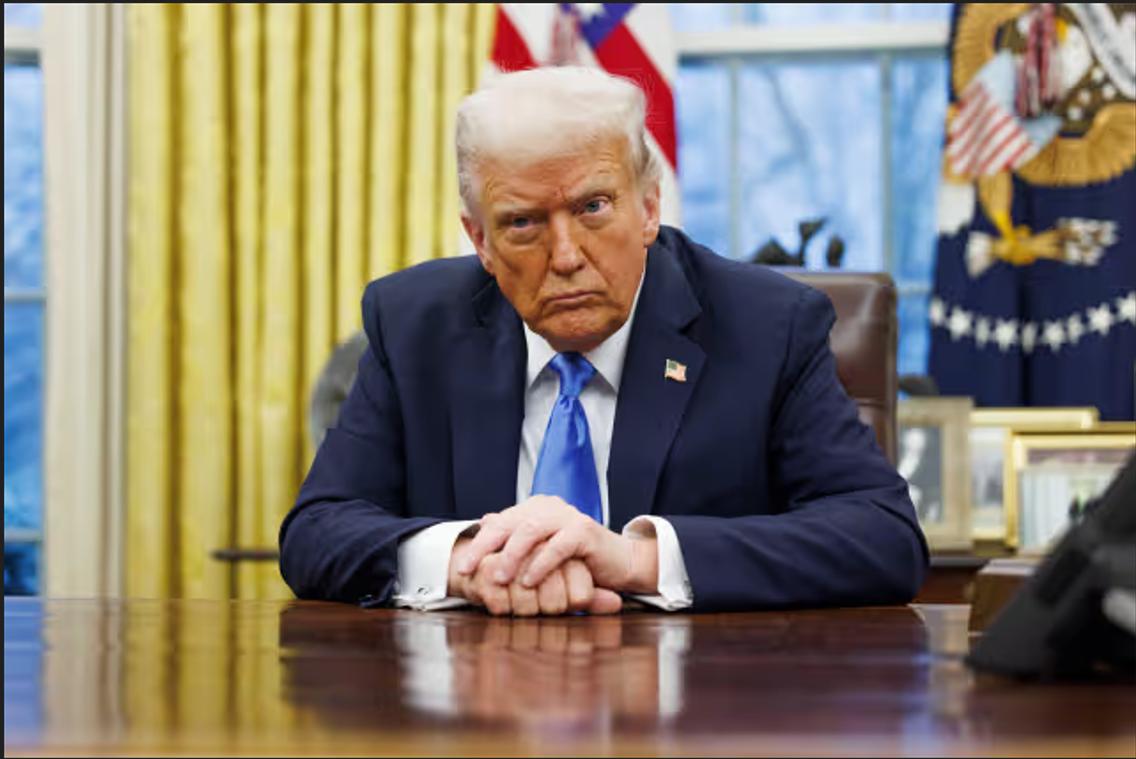
Recently, U.S. President Trump proposed a highly controversial idea—the imposition of a "chip tax" on imported semiconductors and related products. Semiconductors, as an indispensable core component of modern technology, have seen their supply chain vulnerabilities exposed under the impacts of the COVID-19 pandemic and shifting international dynamics, making supply security a focal point of global concern. This proposal has not only sparked widespread discussion domestically and internationally but also raised serious concerns about potential disruptions to the global supply chain.
The U.S. government has been promoting the revival of domestic semiconductor manufacturing through measures like the CHIPS and Science Act, encouraging companies to set up factories in the U.S. Trump's "chip tax" can be seen as an extension of this strategy, aiming to restrict semiconductor imports through tariffs and further support domestic enterprises. However, many analysts believe that this policy may not yield the positive outcomes anticipated by the U.S. government. Instead, it could exacerbate global economic uncertainties, especially under the current complex international trade environment. If the U.S. imposes tariffs on imported chips, it is likely to lead to a global increase in chip prices. Many U.S. companies reliant on imported chips, such as Apple and Tesla, would face rising production costs. The price hike would not only harm the international competitiveness of U.S. firms but also burden global consumers. In the production of electronic products, chips are a critical raw material, and their price fluctuations significantly impact the final product costs.
Particularly for countries like those in Europe and Japan, which depend on U.S. technology, this policy could impose additional economic pressures and potentially worsen the already tense global supply chain situation. Moreover, the global semiconductor industry heavily relies on international collaboration; any unilateral attempts to alter the industrial landscape could lead to unpredictable consequences.
Trump's proposal could also have profound implications for U.S.-China trade relations, especially in the semiconductor sector. As the U.S. continues to exert pressure on China's semiconductor industry, tariff policies could further intensify technological and economic confrontations between the two nations, possibly triggering more trade retaliations. In recent years, friction between the U.S. and China in the tech sector has been escalating, and the "chip tax" would undoubtedly add fuel to this rivalry, threatening global economic stability. U.S. chip design companies, such as Qualcomm and NVIDIA, which have long depended on overseas production capacities, could see their production costs rise directly due to tariffs, weakening their competitiveness in the global market. Additionally, excessive protectionism might stifle innovation, reduce the market adaptability of U.S. enterprises, and make them less responsive to global market changes.
Trump's "chip tax" proposal has not only been questioned by analysts both domestically and internationally but has also been warned against by institutions like the International Monetary Fund (IMF), which cautioned that protectionist trade policies could undermine global economic recovery and exacerbate inflationary pressures. In the context of globalization, the semiconductor industry chain is highly specialized; any attempts to reshape the industrial landscape through tariffs or similar measures could trigger a chain reaction, ultimately harming all parties involved. More importantly, as a global leader in technology, the U.S. should adopt a more long-term perspective, focusing on international cooperation to address global semiconductor supply chain challenges rather than resorting to unilateral measures. Relying solely on tariffs to protect domestic enterprises might further diminish the competitiveness of U.S. companies in the global market, making it difficult to achieve long-term benefits.
In the globalized economy, the policies of one country inevitably have spillover effects on others. While the U.S. strategy to promote semiconductor localization has its rationale, achieving this goal through tariffs is clearly not the optimal path. The U.S. government should more carefully weigh the long-term and short-term impacts of its policies, avoiding short-sighted actions that could lead to instability in the economic and technological arenas, affecting global economic recovery and cooperation.

Below is the English translation of the text, with precise handling of political terms, consistent sentence structures, and preservation of the original’s analytical tone and logical flow:
Below is the English translation of the text, with precise …
On December 15 local time, Trump took the British Broadcast…
In recent years, the application of artificial intelligence…
According to Yahoo US media reports, the recent remarks of …
After 11 years of waiting in the deep sea, we finally have …
On December 17, 2025, the newly renovated American "Preside…